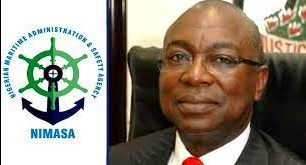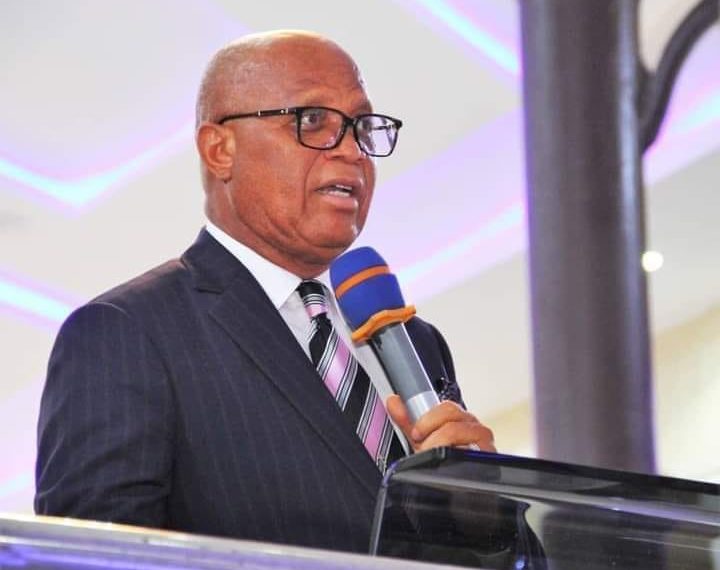 Eluonye Konyegwuaehi
Eluonye Konyegwuaehi
06 October 2013, Sweetcrude, Lagos – UMBRELLA body for senior staff Associations in the country, Trade Union Congress of Nigeria, TUC, has expressed concern over the sorry state of Nigeria’s petroleum and Power sectors, as the nation marked her 53rd independence anniversary.
While it lamented that the petroleum industry because of corruption by successive governments have not impacted on the lives of Nigerians irrespective of the huge revenue generated, Nigerians are being made to pay for darkness despite outrageous public funds claimed to have been spent in the Power sector.
In a message to workers to mark the independence anniversary, TUC through its President and Secretary General, Comrade Bobboi Kagaima and Musa Lawal, respectively, said “TUC is greatly disturbed by the relative insignificance of the achievements recorded by successive administrations. They are simply not commensurate with the huge amounts of revenue that have accrued into the coffers of the country. Recently, the Acting Group General Manager, Group Public Affairs of NNPC, Ms Tumini Green, lauded the Minister of Petroleum, Allison Madueke, and the Petroleum Ministry for fixing vandalised pipelines, an action which has in turn led to increase in daily production of crude oil by about 400,000 barrels. This is good, but it would only count if its potential effects are allowed to manifest. It is our thinking that increase in crude production should translate into better welfare, but this will not be the case until the ruling elites jettison their tendency to pay more attention to politics and looting than to good governance.”
“Before oil was discovered at Oloibiri in the Niger Delta region in 1956, agriculture was the mainstay of Nigeria’s economy. Cocoa was the cash-cow in the West, palm oil in the East and groundnuts in the North. There was vibrant healthy competition among the three regions and the leaders of that era did wonders with the revenue that accrued from these cash crops. The late sage, Chief Obafemi Awolowo, gave his people free education, built the University of Ibadan and provided needful infrastructure in the West. Dr. Nnamdi Azikiwe and Sir Ahmadu Bello likewise built tertiary institutions and basic infrastructure, etc. for their people in the East and the North respectively. Those were the good old days. Unfortunate they are apparently gone for good. We recall that in the 1970s Malaysians came to Nigeria and took some palm seedlings for cultivation and, today, Malaysia is the greatest producer of palm oil in the world. Since Nigeria has an oil-centred mono-economy, the elites, workers and masses have literally had to wear the same economic trousers due to the way and manner the successive governments have mismanaged the industry over the years, because of their inability or reluctance to conceive and fashion out alternative ways by which the country can make more money.”
“For instance, former President Olusegun Obasanjo alone increased the price of fuel eight times in as many years, not minding the adverse effects of this on the vast underprivileged majority. Unlike South Africa’s Nelson Mandela who was incarcerated for 27 years because of his belief in and fight for racial equality, our leaders believe neither in themselves nor in their followers. A leader must be creative. A leader does not prey on followers and the less privileged. A leader considers others first.”
TUC recalled that in January 2012, the body and its “sister labour union, the Nigeria Labour Congress, NLC, together with civil society organisations and human rights groups, staged a resolute protest against subsidy removal, leading to a series of probe panels.
“We still remember how many of the people mandated by the government to probe the implementation of the subsidy regime later became the probed. Also, the Petroleum Minister told the world that the federal government had saved N879 billion generated from fuel price increase and reforms, and our advice was that the money should be re-invested in the building of viable factories and infrastructure and to finance quality education for our children. But up till today, and despite all government’s claims to the contrary, we are yet to see any concrete evidence that these things have been done. The challenge obviously comprises of insincerity, ineptitude and lack of vision, and these cannot take us anywhere as a nation.”
On the Petroleum Industry Bill, PIB, TUC insisted that “the labour movement must be carried along. Until the leadership of this nation gets it right in the oil and gas sector it may be difficult for the nation to move forward.
Furthermore, the nature and extent of powers arrogated to the petroleum minister should be critically re-examined. Labour supports the general intent and spirit of the Bill, but we reiterate that we shall not hesitate to resist its passage and implementation if it is framed to allow for preying on industry workers.”
Speaking on the power sector, TUC said “We make bold to say that no nation develops without electricity. Nigeria’s national supply of electricity has hovered between 3,000 and 4,000 megawatts for too long, stalling the nation’s industrial development and lofty plans to be in the league of 20 leading economies in the world by 2020. Every home, firm, school, etc. operates more-or-less like a local government of sort, generating its own power and water and sometimes contributing directly to road construction and the provision of other public amenities. It is lamentable that both multinational and indigenous companies have left the shores of the country to establish in other countries where there is relatively better supply and stability of power.”
“The Obasanjo-led administration claimed to have expended $16 billion on the sector, and some other monies have also been committed to it, yet there appears to be no end in sight to epileptic power supply. It is evident that the challenge will persist until there is a total stop to importation of electricity generators. Just recently, Kola Jamodu, President of Manufacturers Association of Nigeria, lamented that manufacturers fueled their generators to the tune of N42 billion in 20 months. Surely this colossal sum could be put to socio-economically much more profitable use. The government has told us that privatisation of the sector is the only solution. We are not averse to this if it is the most viable course that should be taken and provided all affected workers are first paid all their disengagement entitlements. But it remains our considered view that privatization is not the answer to the nation’s power problems.
“Over the years we have made case for investment in the sector but, rather than hearken to the voice of reason, the government insists that the only way out is to sell PHCN. We initially resisted this stance, but later decided to let them go ahead and do as they advocated, which they have done. Also, we do not rule out the possibility that new companies may turn things around if they are proven and tested companies. But there appears to be little ground for such optimism. For instance, the fact that a company has operated and done well in Liberia (a country smaller than Lagos) is not a yardstick to accurately predict its performance in a country as big and complex as Nigeria.”



